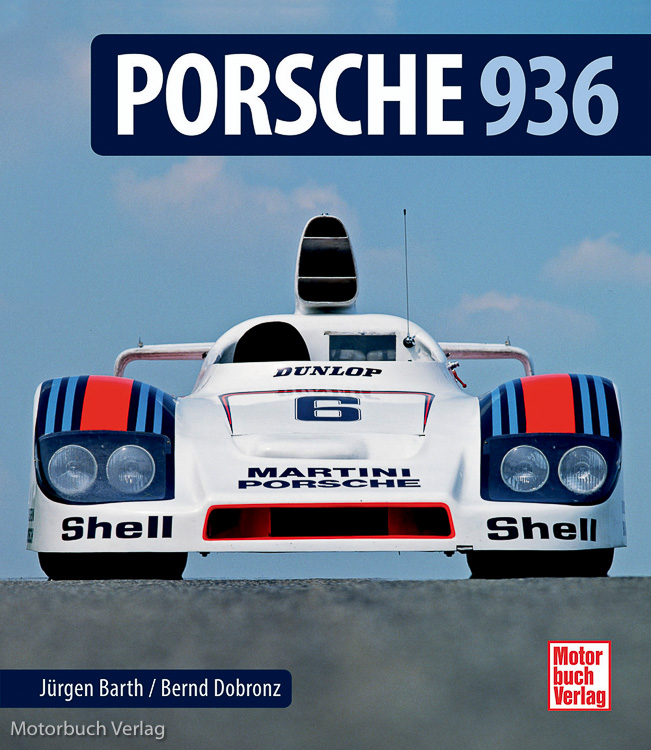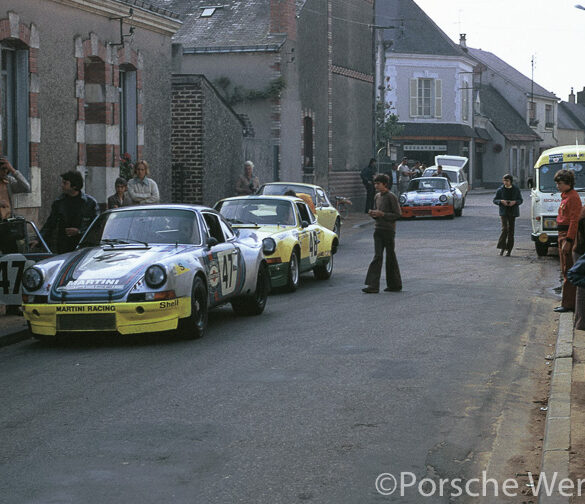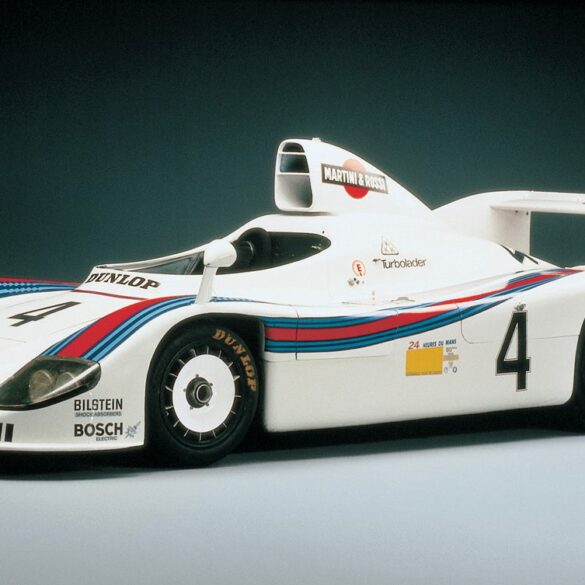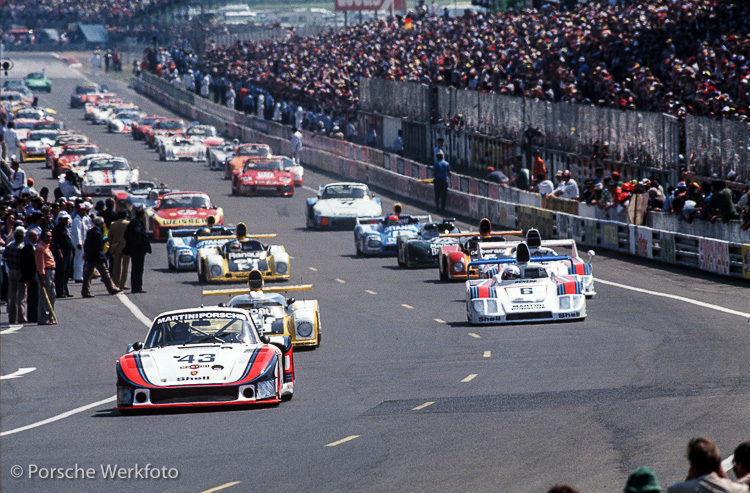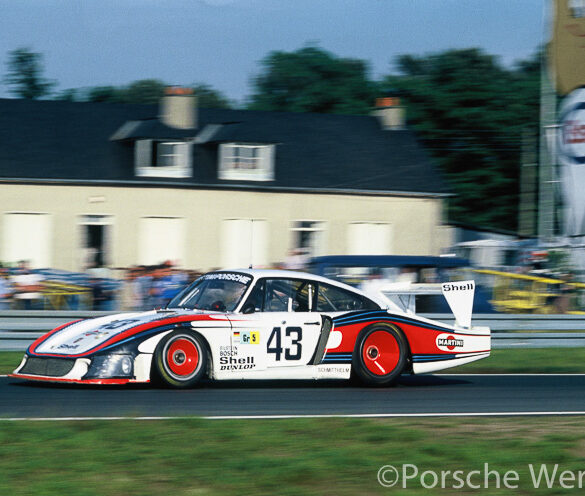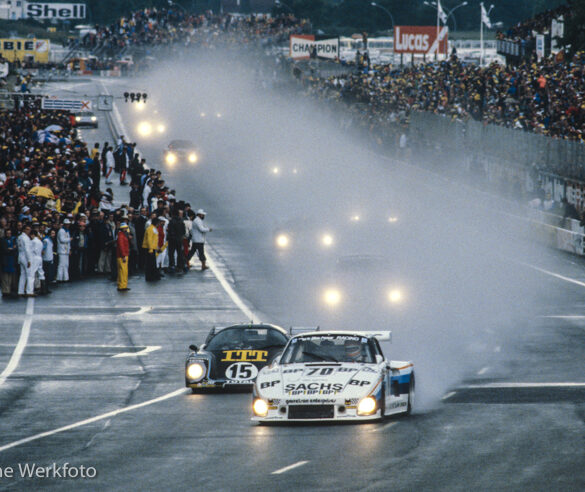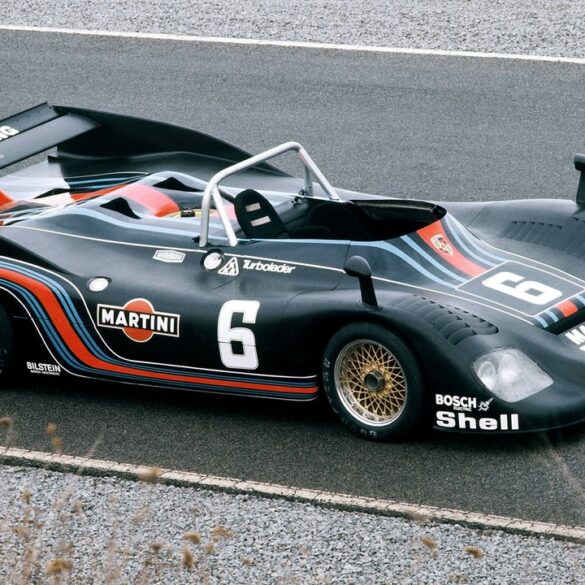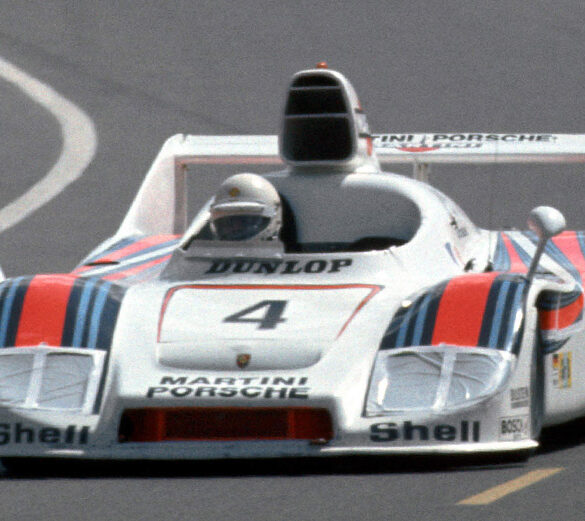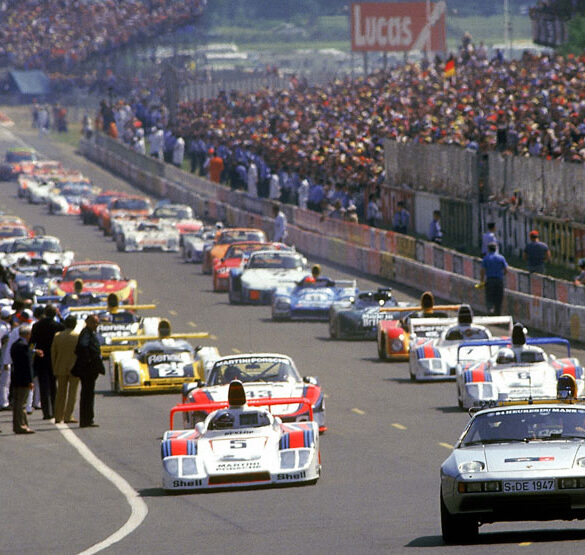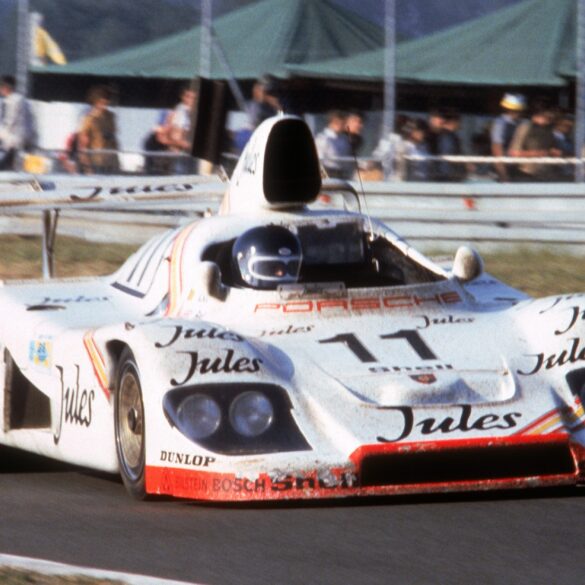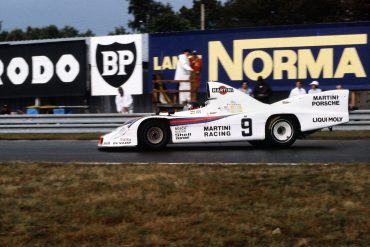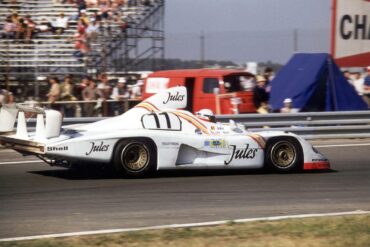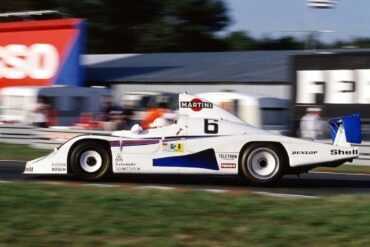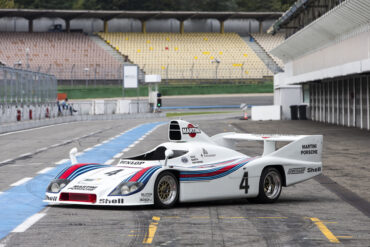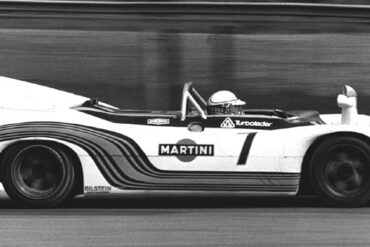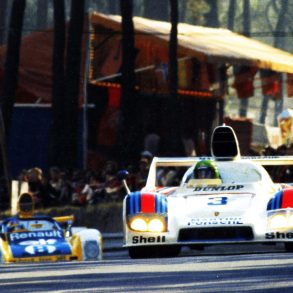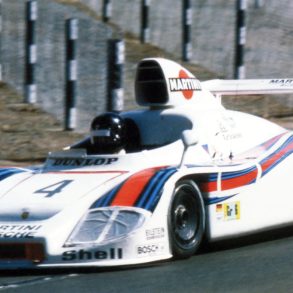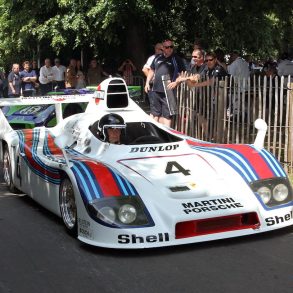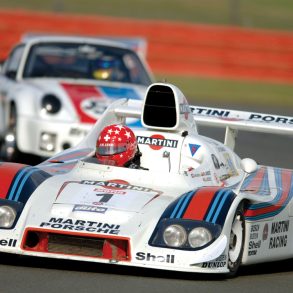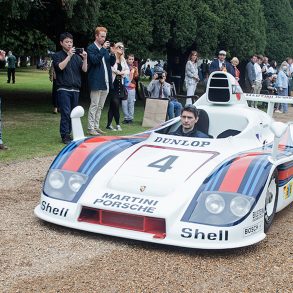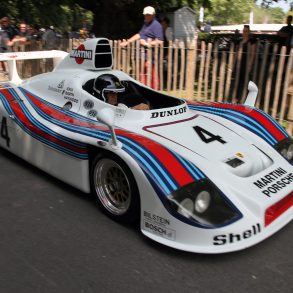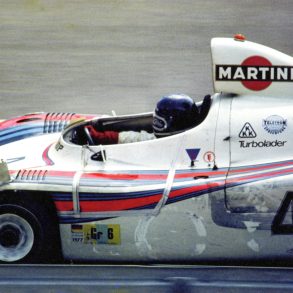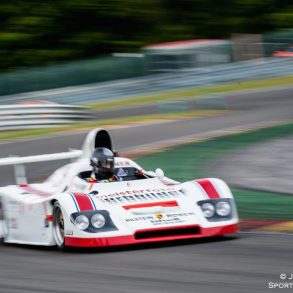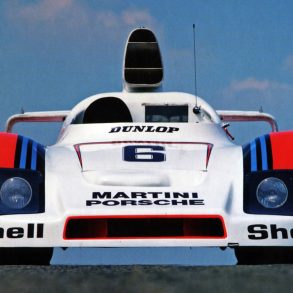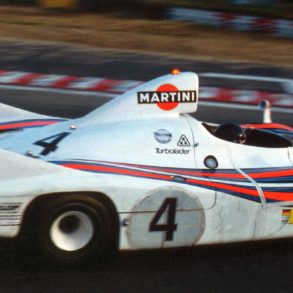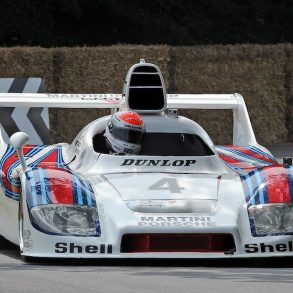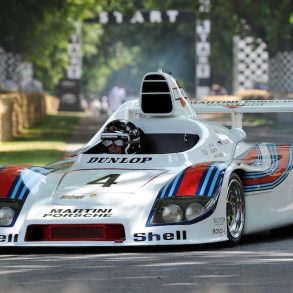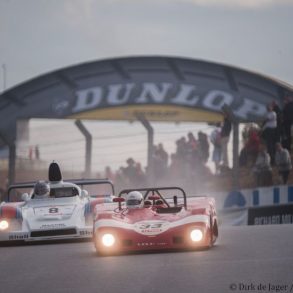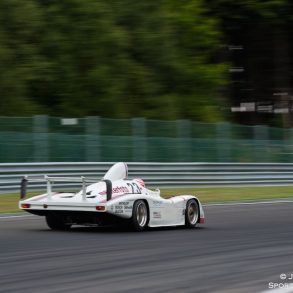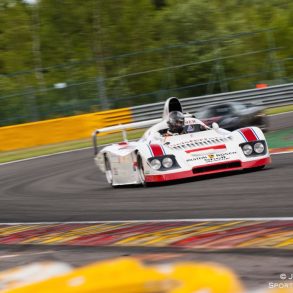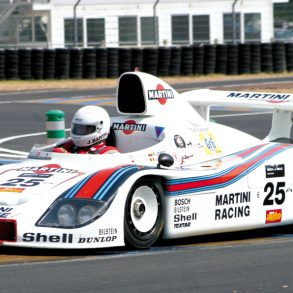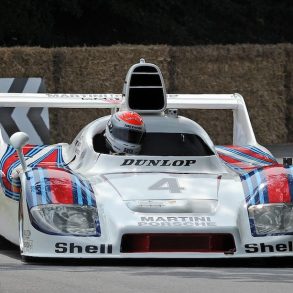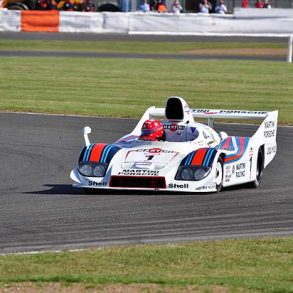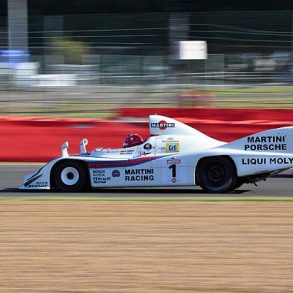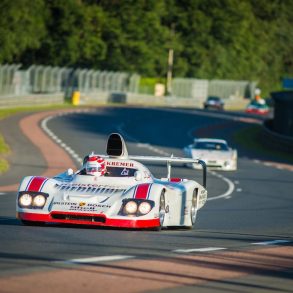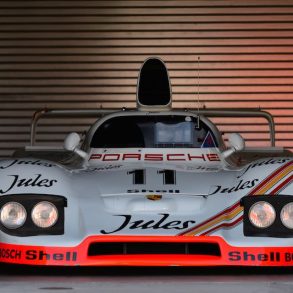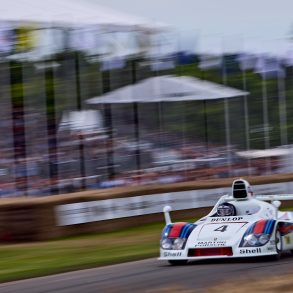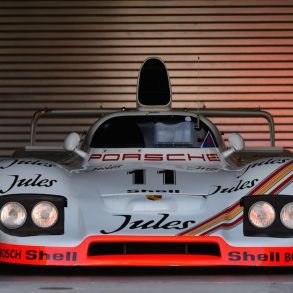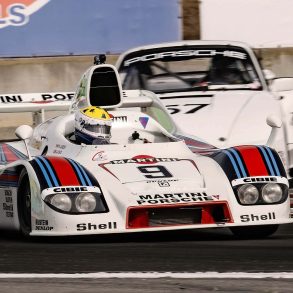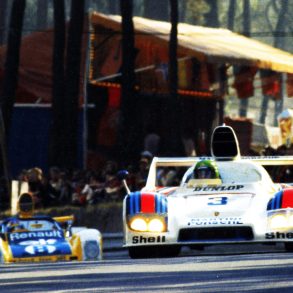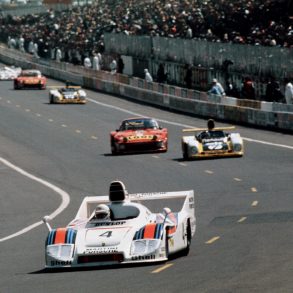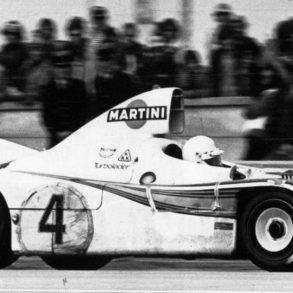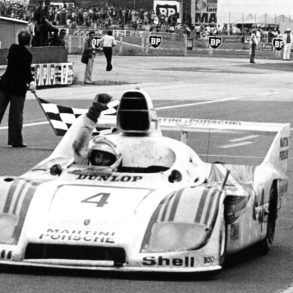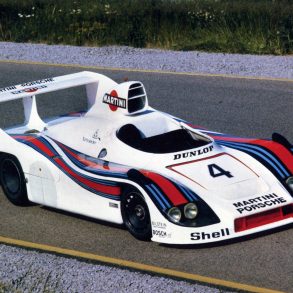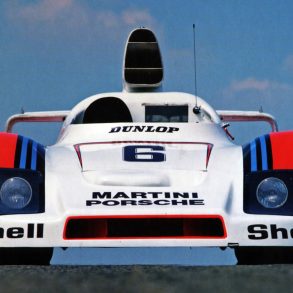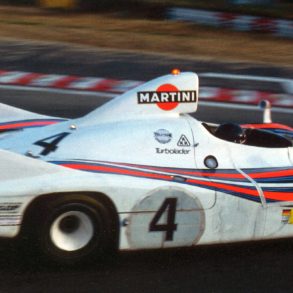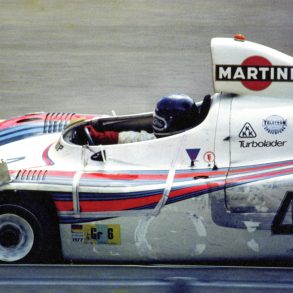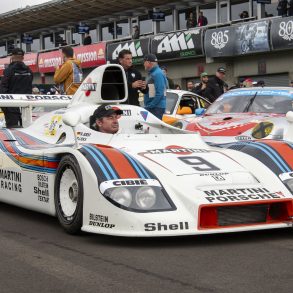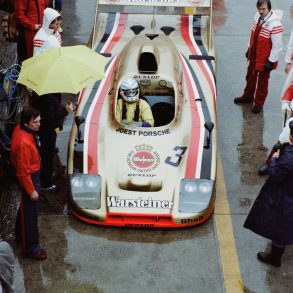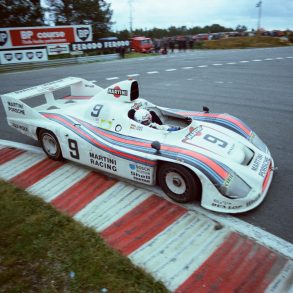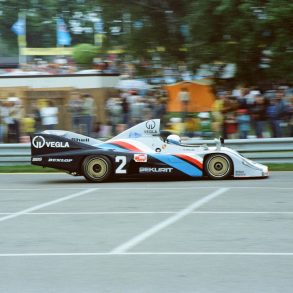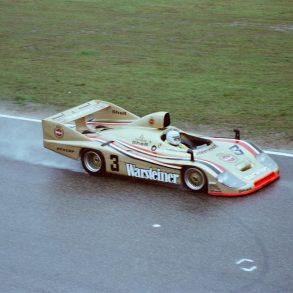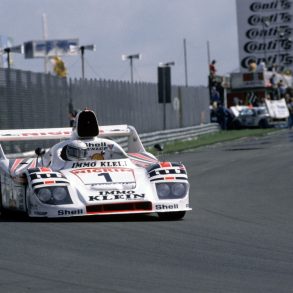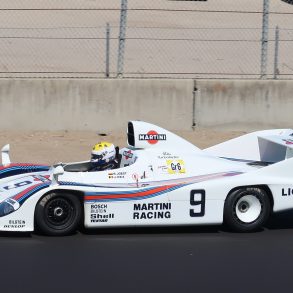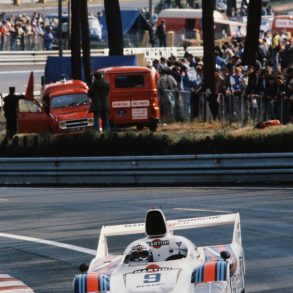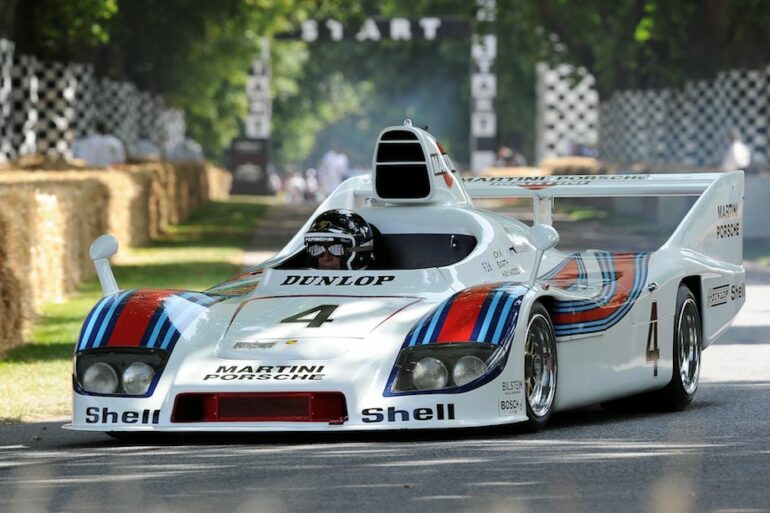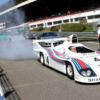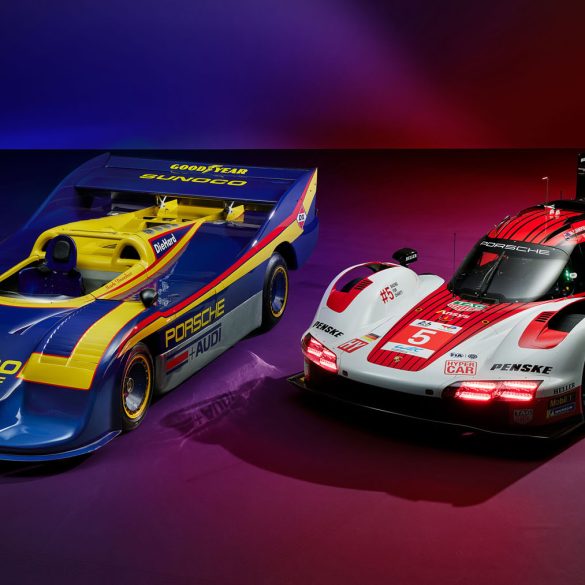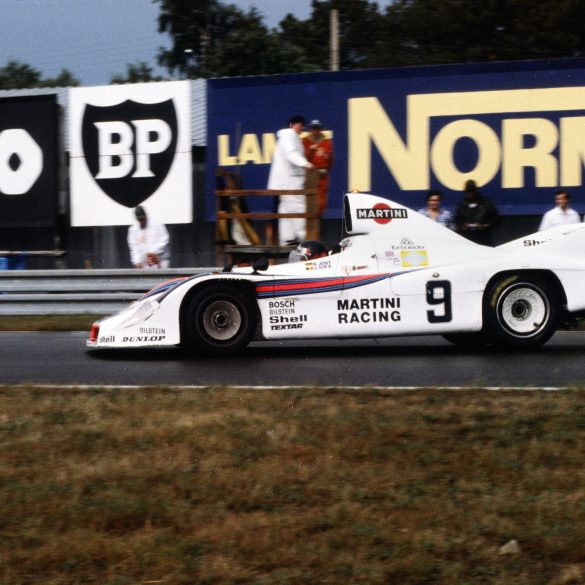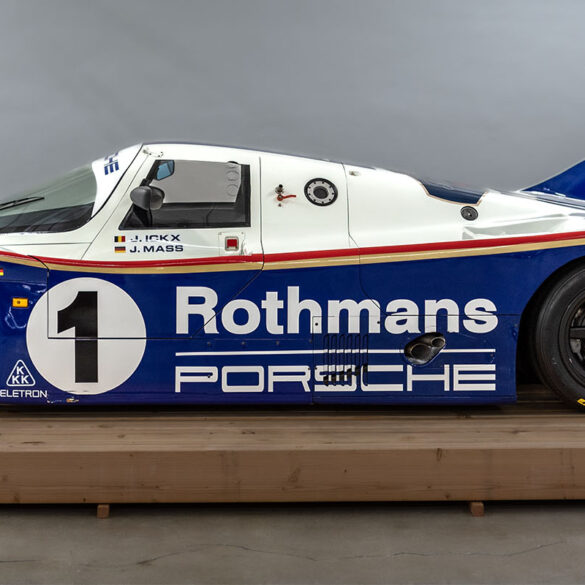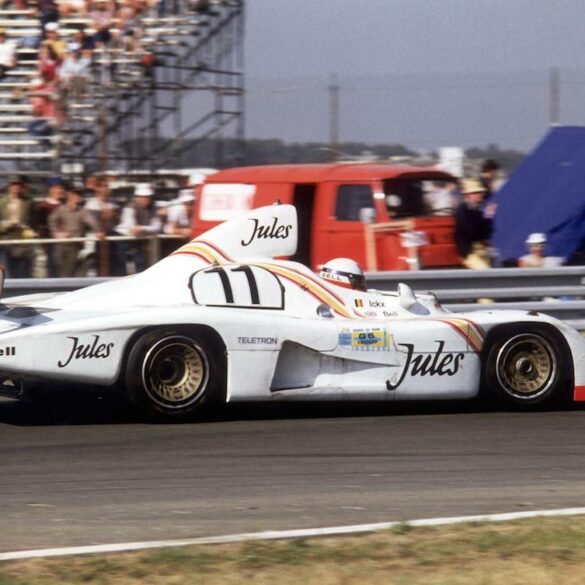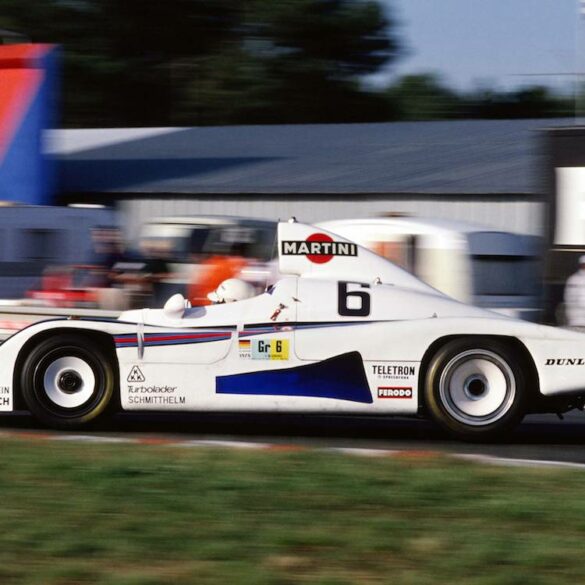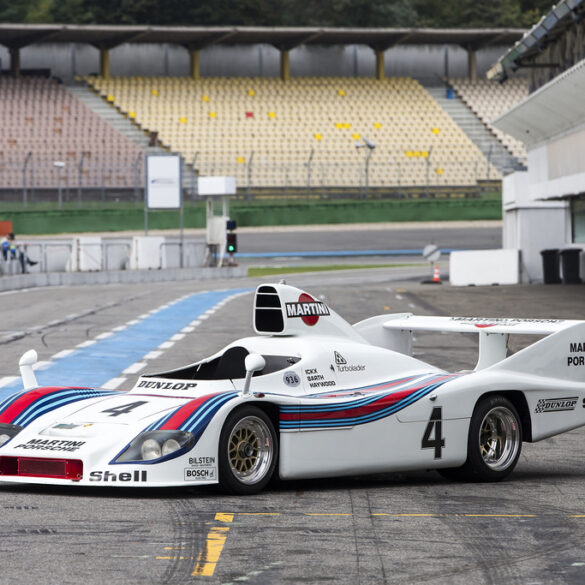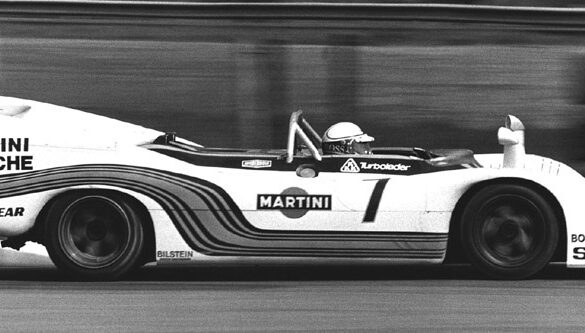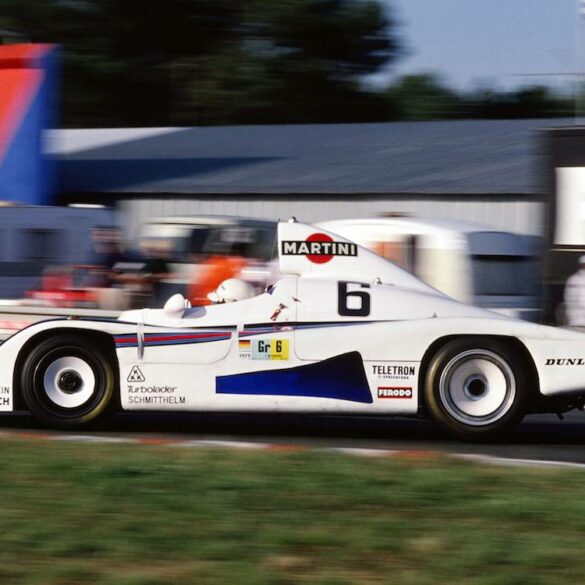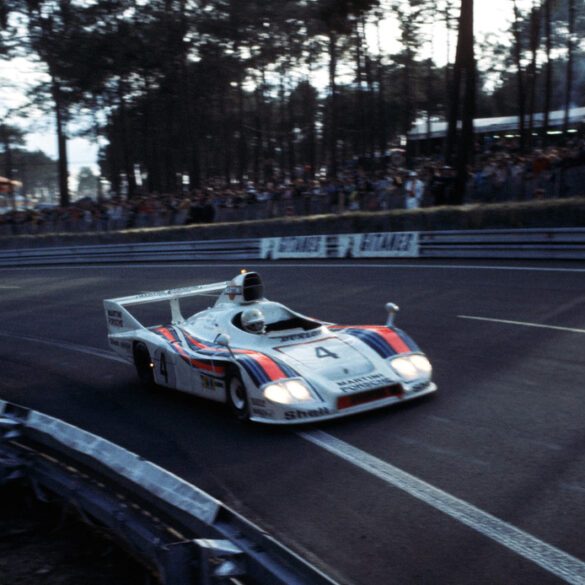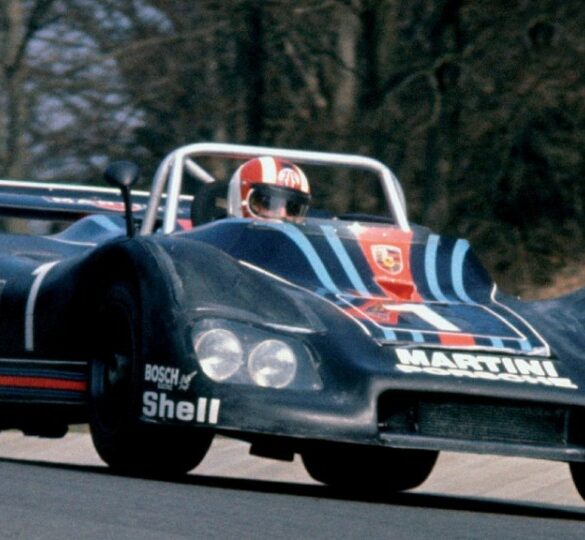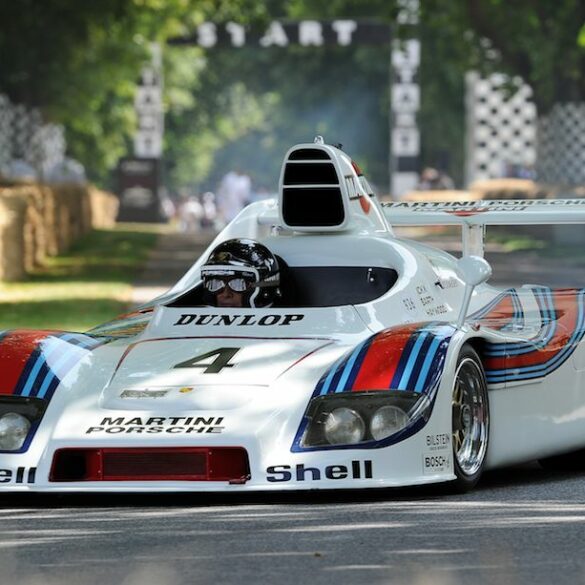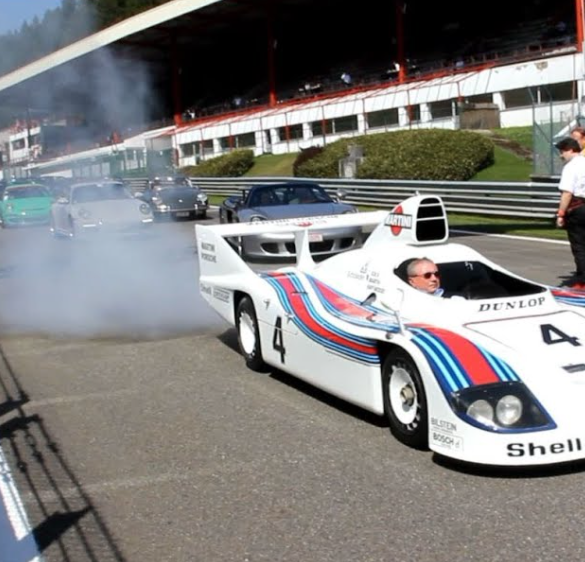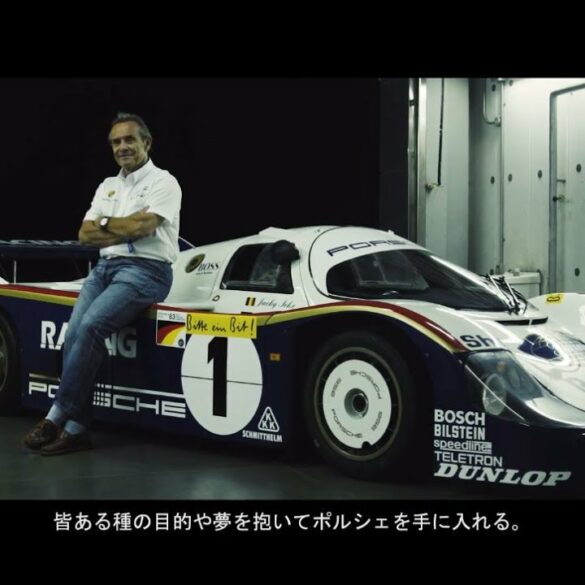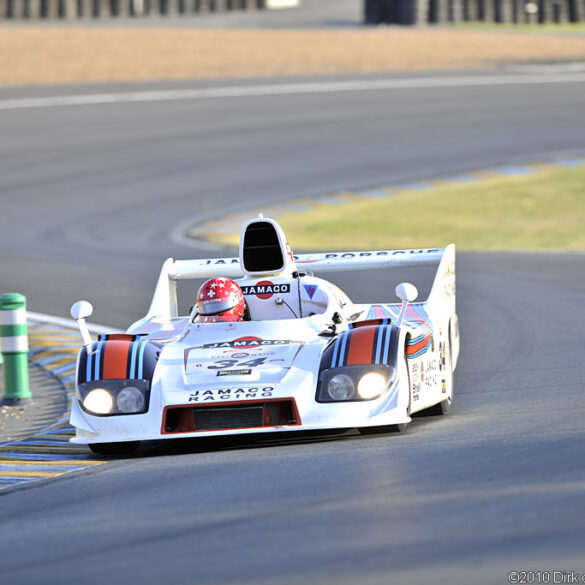Porsche 936 - The Ultimate Guide
Raw. Resilient. Three-Time Le Mans Winner.
Model Guides / Featured Stories / Pictures & Videos / Data & Research / FAQs / News & Updates
Porsche 936 Basics
Manufacturer: Porsche
Production Years: 1976 - 1981
Chassis: Aluminum monocoque
Layout: Rear mid-engine, rear-wheel-drive layout
Engines: 2.1 L Turbo Flat 6 and 2.65 L Turbo Flat 6 (1981)
Transmission: 5-speed manual
Premiere: 1976 April 4 at Nürburgring
Achievements: Le Mans winner 1976 - 1977 - 1981
Predecessor: Porsche 908
Successor: Porsche 956
In addition to the Manufacturers World Championship for production race cars (Group 5, Porsche 935), in 1976 Porsche took part in the World Championship for sports cars (Group 6). In record time, Weissach developed a new racing sports car of the 936 type. Technically, the engineers utilized the proven 908/03 and 917/10 designs in the development of the open Spyder. The result was an aluminium space frame which was covered by a plastic body. Powering the 936 was the 2.1-litre six-cylinder boxer turbo engine with an output of around 520 hp, previously planted in the 911 Carrera RSR Turbo 2.1.
The first race-worthy Porsche 936, called the ‘black widow’ within Porsche because of its matte black body, conducted tests in the second half of February on the southern French race course in Le Castellet. Participation in the Le Mans 24 Hours was rewarded in June 1976 with a convincing overall victory to Jacky Ickx and Gijs van Lennep. In 1977, Porsche returned to Le Mans with the 936/77. Its body was smaller, lower, shorter and further refined aerodynamically.
The engine now featured two turbochargers and delivered 20 more horsepower. At one of the most dramatic races in history, Jacky Ickx, Jürgen Barth and Hurley Haywood slayed the armada of four Renault works cars and two factory-supported “Mirage” with Renault motors. In the year 1981, the 936 celebrated a sensational comeback with another overall Le Mans victory.
With three wins at Le Mans, the 936 purpose-built for the Sports Car World Championship was one of the most successful Porsche racing cars ever. It provided Porsche with its first Le Mans win with a turbo engine in 1976. One year later, Jacky Ickx, Jürgen Barth and Hurley Haywood fended off the challenge of a veritable armada of six Renault racing cars in a dramatic race. The 936 made a sensational comeback in 1981 to celebrate yet another Le Mans overall win.
An Opportunity
Sensing an opportunity in the turbo allowance (and perhaps looking to exact a measure of revenge on the FIA for having forced their brilliant and expensively developed 917 into mothballs) Porsche pounced. Quickly, a prototype was developed based on the 917's aluminum space frame but bearing the 935's proven 2.1-liter turbo motor and fiberglass spyder coachwork. Dubbed the 936, Porsche's new prototype spyder was given a prime directive to win Le Mans outright, but first, there was the little matter of the 1976 World Sportscar Championship..
The Porsche 936, A Triple Le Mans 24 Hours Winner
As with most other prototype race cars, the 936's initial outing demonstrated some teething problems, but in the end it was about to score three wins in the world’s most prestigious race – 24 Hours of Le Mans, in 1976, 1977 and 1981.
Launched in 1976, the Porsche 936 was constructed to compete in Group 6 of the World Sportscar Championship. The new car had a hard task to continue the winning path of its predecessors 917 and 908. Actually, the Porsche 936 was the mix of its predecessors. Many concepts and elements of the previous models were implemented to the new Group 6 car. The biggest change was done to the chassis to cope with the increased engine power.
At the season-opening 300-kilometer race at Nurburgring, a stuck throttle cable relegated the first 936 (#001) to a fifth-place finish. However, from that point forward, the 1976 World Sportscar Championship belonged to the Porsche 936. The second car produced (#002) would win round 2, the Monza 1000km, with Jacky Ickx and Jochen Mass sharing driving duties. This same chassis would claim three more series victories in the seven-round season, along with scoring the all-important overall win at Le Mans. Chassis #001 would add two more wins to the 936's total, helping to secure the 1976 championship by a landslide.
The biggest achievement definitely was a triumph at Le Mans 24 Hours when Gijs van Lennep and Jacky Ickx drove the #20 Porsche to the victory. The other Porsche 936, driven by Reinhold Joest and Jurgen Barth retired from the race. After the victory at Circuit de la Sarthe, Porsche 936 continued to dominate the season and won the remaining six rounds of the World Sports Car Championship. Porsche was crowned as WSCC Constructors’ champion but in the following year German manufacturer set other priorities.
Interestingly, Porsche decided not to sell the 936 to private teams, wanting them instead to use the 935 and updated 908 cars. In 1977 the only goal for the German manufacturer was to score another win at Le Mans and again fielded two cars.
The #4 car driven by Jurgen Barth, Hurley Haywood, and Jacky Ickx, who joined them after his and Henri Pescarolo’s Porsche #3 was pulled out at the early stage of the race. It was another marvelous victory after the margin to the 2nd-placed Renault was 11 laps mainly thanks to Ickx’s phenomenal driving.
The 1977 model had a much sleeker low-drag body, frontal area was decreased, and the turbocharged engine was equipped with two smaller turbochargers for better throttle response.
The Porsche 936 wasn’t able to win for the third consecutive time in 1978, even after being dominant in qualifying. However, two cars finished 2nd and 3rd respectively, with Bob Wollek, Jurgen Barth, and Jacky Ickx in the car #6, and Reinhold Joest, Hurley Haywood, Peter Gregg in the Porsche #7. The third Porsche #5 of Jacky Ickx, Henri Pescarolo, and Jochen Mass retired on lap 255.
After a disappointing appearance in 1979 when both cars retired from the race, the three Porsche 936 were retired and placed in the factory museum. An experimental attempt in 1980 when Joest Racing built a Porsche around 936-004 chassis was relatively good after the car driven by Jacky Ickx and Reinhold Joest finished 2nd in the race. However, that wasn’t an original Porsche 936.
One Last Hurrah for 1981
A bit surprisingly, two Porsche 936 were pulled out of retirement for the 1981 Le Mans 24h.
Instead of building a new Group 6 car, what was illogical because of major rule changes announced for 1982 the modified 936s equipped with a new 24-valve IndyCar engines were entered and that was a bingo. The #11 Porsche 936 driven by Derek Bell and Jacky Ickx won the race, while the #12 Porsche of Jochen Mass, Hurley Haywood, and Vern Schuppan was 2nd in the class.
That definitely was the end of Porsche 936’s long and fruitful racing career. In the following year the legendary car was replaced with Porsche 956 which had a brand new chassis and body, but carried the same turbocharged six-cylinder engine like the 1981 Le Mans winner.
Porsche 936 Pictures, Galleries & Wallpapers
The Porsche 936 is all about technology and performance but at the same time it is still one sexy looking race car. Enjoy the design and all the little details in these Porsche 936 picture galleries.
Porsche 936 Videos
Experience the Porsche 936 in these engaging and awesome videos. We recommend you turn up the volume to be transported back to the days of insane racing cars.
Porsche 936 FAQs
Whether you're a seasoned enthusiast or just discovering the legacy of this incredible machine, our FAQ section is here to answer your biggest questions.
What is the Porsche 936?
The Porsche 936 was a Group 6 prototype race car, developed by Porsche for open-cockpit endurance racing. It debuted in 1976 and went on to become a three-time Le Mans winner, playing a crucial role in Porsche’s golden era of prototype racing.
What races did the Porsche 936 win?
The Porsche 936 won the 24 Hours of Le Mans three times:
1976 (Debut year)
1977 (With an incredible comeback by Jacky Ickx)
1981 (A surprise return with a modified version)
It also claimed victories in other endurance races and was instrumental in securing World Championship for Makes titles for Porsche during its competitive years.
What racing success did the Porsche 936 achieve?
The Porsche 956 was one of the most successful endurance race cars of all time. Highlights include:
Four consecutive Le Mans 24 Hours victories (1982–1985)
World Sportscar Championship titles in 1982, 1983, and 1984
Sweeping the 1983 Le Mans podium with a 1-2-3 finish
Dozens of wins across Europe in Group C competition with both factory and privateer teams
Its dominance in the early years of Group C racing helped cement Porsche’s legacy in the sport.
What engine did the Porsche 936 use?
The 936 was powered by a 2.14-liter turbocharged flat-six engine, derived from Porsche’s 930 Turbo street car and 917/10 Can-Am technology. It produced approximately 540–600 horsepower, depending on boost levels and race setup. The engine was compact, reliable, and incredibly efficient, key to its endurance success.
What made the 936 so special?
The Porsche 936 was special because of its combination of engineering simplicity and raw performance. It was Porsche’s answer to the lightweight, open-cockpit Group 6 class, and it proved devastatingly effective. It was also adaptable—Porsche brought it out of retirement in 1981, fitting it with a new engine and chassis tweaks, and it still won Le Mans. That resilience cemented its legend.
How fast was the Porsche 936?
In its prime, the Porsche 936 could reach top speeds of around 215 mph (346 km/h) on the Mulsanne Straight at Le Mans. With a lightweight chassis and aerodynamic open-cockpit design, it was both quick in a straight line and balanced through corners—perfect for long-distance racing.
How does the Porsche 936 compare to the 917 and 956?
The 936 bridged the gap between the legendary Porsche 917 of the early ’70s and the 956 of the 1980s. Unlike the 917’s monstrous V12 and the 956’s closed-cockpit design, the 936 was an open-top turbocharged prototype, built to meet Group 6 rules. It emphasized efficiency, simplicity, and agility, and proved to be just as effective on the world’s toughest endurance circuits.
How many Porsche 936s were made, and what are they worth today?
Only a handful of Porsche 936s were built (including factory and updated versions). Because of their rarity and racing pedigree, especially those with Le Mans-winning history, they are worth $5 million or more today—assuming one ever comes up for sale. Most reside in museums or private collections.
Join Our Porsche Community
Sign up for our weekly Porsche newsletter. The latest Porsche news, rumors, reviews and more delivered to your inbox. Cool Porsche stuff perfect for the flat-six obsessed.


